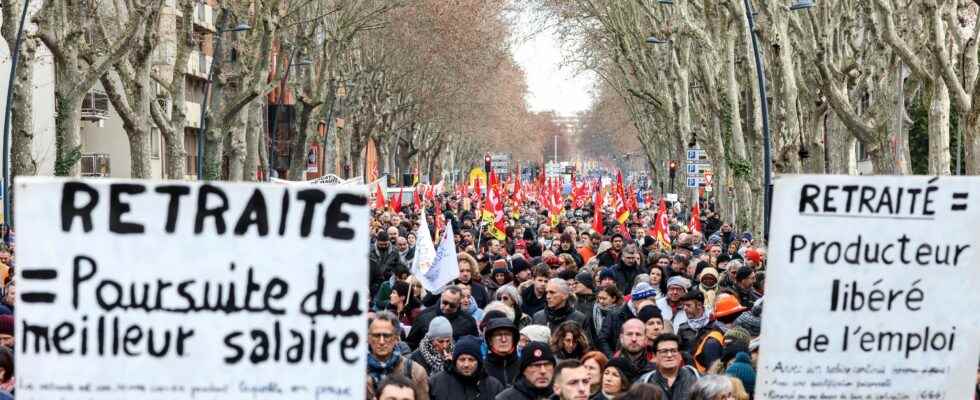The debate on pension reform is of a new kind. Until 2019, the unions, including the CFDT, were against raising the legal age for a reason of principle. Let’s say that retiring later was seen as an unacceptable attack on a social achievement won in 1981. Everyone played their role: the governments wanted to ensure the financial viability of the system, the unions defended the rights of employees. Everything was fine, or at least everything was normal. The current convulsions are of a different order, and I was able to experience it in the various debates in which I had the joy of participating over the past two weeks in our media.
For some trade unionists, working longer does not simply correspond to the loss of a social asset. This is an unacceptable proposition in itself. In other words, the posture of yesteryear has turned into conviction, the defense of social gains has turned into an absolute refusal to work more.
This pension reform is the first post-Covid, after the introspection made possible by the confinements crystallized the feeling of malaise at work. Evoking an epidemic of laziness is, precisely, intellectual laziness. The labor crisis exists, and its springs are powerful. The first is physical. Some of our fellow citizens are exhausted by exhausting work. It is for them that the devices of arduousness are made but perhaps they are insufficient. Parliament to work on it.
The second is societal. Some workers earn enough of their living to prefer a trade-off between leisure and income that favors the former more. “Work more to earn more” was a powerful campaign slogan. He would be politically weak today.
The third spring, rarely underlined, is linked to management. Indeed, many employees are struggling with unnecessary processes, repeated meetings and incompetent managers. This problem concerns the public as well as the private sector. An executive of a large company, very well paid, absolutely not “painful” in the sense that we usually hear, confided to me last week that he and his colleagues awaited retirement as a blessing. Contemporary management, which gives little meaning, which restricts autonomy, which controls constantly, which does not keep its commitments, which multiplies managers at all levels, is a formidable demotivating machine. It plays a role in the labor crisis. One of the challenges that organizations have to face is in particular the aspiration of the youngest (but basically, of all workers) to better articulate their professional life and their private life. It is therefore the question of organization. Innovating in terms of work organization and management means giving ourselves the means to resolve the labor crisis we are facing.
Work differently and better
In this respect, we can only welcome the announcements of the Minister Delegate for Public Accounts Gabriel Attal concerning the experimentation of a four-day week in an Urssaf in Picardy, a priori not the most imaginative type of structure in terms of ‘organization. So much the better if we are undeceived. Employees of this Urssaf who so wish will be able to work thirty-six hours a week over four days for a year. It is therefore not a question of reducing working time, which would be harmful for the purchasing power of these employees and for the community. Indeed, our country absolutely needs to produce more wealth to finance its entry into the war economy while maintaining its social contract. Exit therefore the absurd idea of thirty-two hours a week. On the other hand, thirty-six hours with a different organization, why not? After all, why refuse those who wish to concentrate their working day over four days to take advantage of three days to conduct their personal affairs, if that is part of the motivation? In some countries with an impeccable work ethic, such as Germany or northern Europe, the four-day week is debated when it is not already practiced.
The economic, industrial and social rearmament of France is incompatible with working less and with working less. The roadmap is therefore clear: more of us must work (seniors, unemployed, etc.) and we must work later in life. Ensuring the financial balance of the pension system is a legitimate but almost secondary objective in relation to this end: to remain collectively prosperous and powerful. Work less: no! Working differently and better: a thousand times yes. For us, and for the country.
